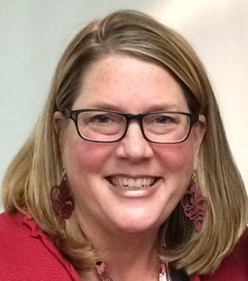The World Has Changed, But the Board’s Job Hasn’t

Timi Tullis, AASB Associate Executive Director
As we come to the end of one of the most challenging years any of us will ever experience, it is worth reminding ourselves of our roles and responsibilities as Board Members. Regardless of all the changes this year, as school board members, your ‘job’ did not change, and the same core roles of the job before COVID-19 remain today.
These core principles will ensure an effective board.
- Students first! As one of my colleagues often says, “Are these ‘big people’ issues or ‘little people’ issues?” Sometimes adults get so focused on their issues and concerns or about being right they lose focus on the students and their community. A district recently told me they put ‘staff before stuff,’ and it resonated with me as well. Indeed, negotiated agreements, construction, and new equipment are important BUT, think about these issues in how they affect the education of students in your district.
- Talk about, reflect on, and share the district’s Vision, Mission, and Strategic Goals. If asked by a constituent why one decision was made over another, state the decision was based on the Strategic Plan. Encourage individuals to attend and become members of the Strategic Planning update process the district should hold every 3-5 years. At board meetings, reflect on if your action items align with your current Strategic Plan.
- As a board, you ensure your teachers and staff members have funding to grow each year professionally. We all know professional development is necessary to improve in most areas of life. Boards must work on their growth. If you’ve ever played an instrument or have been on a sports team, you know practice, practice, practice is essential. The same can be said for your ‘team,’ the Board. On-site work sessions, statewide and national conferences all provide these opportunities.
- Following and abiding by your By-Laws is essential. Each board member should read and be expected to follow the ethical statements included in your by-laws, which should be restated and signed annually. The Open Meeting Act must be followed, confidential information must be kept confidential, and speaking poorly of your administration or other board members will harm the students in your district.
- You, as Board Members, are the ones to establish the rules of how to run your district. You as a board hire the best superintendent possible and give them the reins to run the district’s day-to-day operations under the policies you’ve established. School Board members ONLY function as a seated board, not individually. This is one of the hardest lessons new members need to learn (usually the hard way) and accept. According to recommended Board By-Law 9200, “The School Board is the unit of authority. The School Board member is a part of the governing body which represents and acts for the community as a whole. Apart from the normal function as part of the unit, the School Board member has no individual authority. No individual member of the School Board, by virtue of holding office, shall exercise any administrative responsibility with respect to the schools; nor, as an individual, command the services of any school employee. Individually, the School Board member may not commit the district to any policy, act or expenditure.” Outside of a regularly called meeting, you are simply an ordinary citizen. The School Board sets all policies that govern the district. The Board establishes written policies for everything from student/staff conduct, facilities, curriculum/ instruction, and finances; policies guide every decision and give direction to the administration.
- You should know your school(s) and community/communities. Be sure you represent ALL students in your district, not just your family, friends, and neighborhood/community. What is best for ALL kids? You get a better understanding of your schools by visiting them and having chats with principals and staff members during the visit.
- Members of their community elect Board Members to represent their community in the school system. Those that elect you expect you to have answers to the problems of the school as they might not understand your role on the board team. Help educate the community members on your role vs. saying “I’ll take care of that” on issues you have no authority to fix, help the community members understand the chain of command, and never promise to fix things. By acting as if you can ‘fix’ things, you will hurt the board/superintendent team.
- Have fun and peace of mind knowing you are part of the voice for your students their future. Some days may be quite challenging and frustrating, but watching students advance and become contributing adults in our communities is worth every little frustration.
